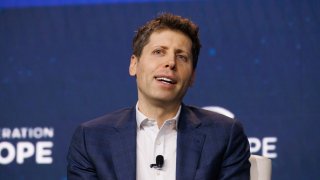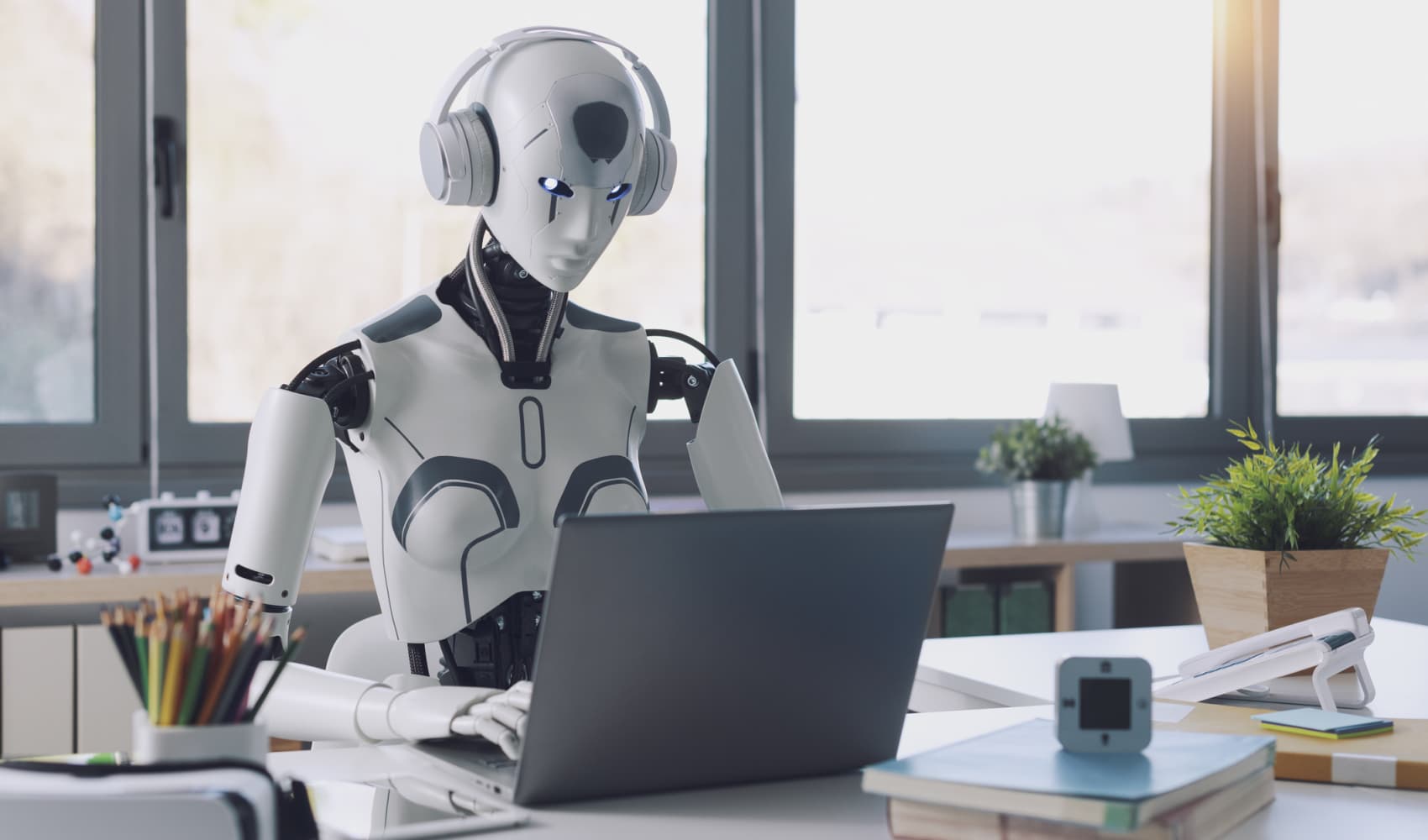
Anyone can ask ChatGPT to answer a question or perform a task. But the popular chatbot is particularly useful for workers in three specific industries, according to OpenAI CEO Sam Altman.
"Coding is probably the single area from a productivity gain we're most excited about today. It's massively deployed and at scaled usage, at this point," Altman said during a recent episode of "Unconfuse Me," a podcast hosted by Bill Gates. "Healthcare and education are two things that are coming up that curve that we're very excited about, too."
Altman, whose company makes ChatGPT, made a point of noting that today's AI systems "certainly can't do [those] jobs" for you. But in those three fields, workers might benefit from using the chatbot as a productivity tool, he said.
Here's how.
We're making it easier for you to find stories that matter with our new newsletter — The 4Front. Sign up here and get news that is important for you to your inbox.
Coding
ChatGPT can help programmers finish their work as much as three times faster than usual, Altman said. The system can assist in tasks like reviewing written code for mistakes, writing test cases, answering a programmer's questions and even generating new code completely on its own, he added.
The key word is "assist." GPT-4, which OpenAI released last year, provides the wrong answer to programming questions nearly half of the time, according to a 2023 study from researchers at Stanford and the University of California, Berkeley.
Money Report
Coders who use ChatGPT to assist their work should proceed with caution and double-check everything the chatbot says — a process that may be faster than performing those tasks manually.
The goal isn't just to help coders complete more work in less time, Altman said: Such a productivity shift can, and should, give people more free time to think outside of the box.
"They can — at that higher level of abstraction, using more of their brainpower — they can now think of totally different things," he said. "It's like [how] going from punch cards to higher level languages didn't just let us program a little faster, it let us do these qualitatively new things."
Education
Currently, AI systems can help teachers design a curriculum, or personalized lesson plans for specific students. They can also save teachers time by performing various administrative tasks for them, like tracking attendance or sending automated assignment reminders.
It may also be useful for learning new languages: Educational tech companies like Duolingo have, somewhat controversially, reportedly started cutting workers while relying more on AI.
Gates has also touted ChatGPT's ability to power tutoring programs, in the hopes of expanding access to personalized tutors for students in remote and underserved communities. Last year, he predicted that people would be "stunned" by how much AI tutors could soon help improve students' reading and writing skills.
"The AIs will get to that ability, to be as good a tutor as any human ever could," Gates said in a keynote talk at the ASU+GSV Summit in San Diego last April.
Some educators have worried that tools like ChatGPT could make it easier for students to cheat on assignments. Research hasn't shown an uptick in cheating so far — but the mistakes it can make mean that parents and teachers should remind students to never rely solely on AI, Barnard College psychologist Dr. Tovah Klein told CNBC Make It last year.
Healthcare
OpenAI's chatbot has already passed the U.S. Medical Licensing Exam, though experts caution that the system's propensity for errors makes it unlikely to be trusted by most patients for the foreseeable future.
But AI tools can benefit doctors by serving as a digital assistant to help with time-consuming administrative tasks like insurance paperwork, American Medical Association president Jesse Ehrenfeld said last year.
Such tools can analyze research and summarize patients' medical histories, the AMA separately noted last year. And they can save time and educate medical patients by answering many of their most frequently-asked questions, research shows.
Beyond your doctor's office, some pharmaceutical companies are using ChatGPT to automate parts of the processes for discovering and researching new drugs, Gates wrote in a 2023 blog post.
"One of the Gates Foundation's priorities in AI is to make sure these tools are used for the health problems that affect the poorest people in the world, including AIDS, [tuberculosis], and malaria," he wrote.
Altman echoed that excitement on Gates' podcast, noting that the technology is only in its infancy.
"The stuff that we're seeing now is very exciting and wonderful, but I think it's worth always putting it in context of this technology that, at least for the next five or ten years, will be on a very steep improvement curve," Altman said. "These are the stupidest the models will ever be."
Want to land your dream job in 2024? Take CNBC's new online course How to Ace Your Job Interview to learn what hiring managers are really looking for, body language techniques, what to say and not to say, and the best way to talk about pay. Get started today and save 50% with discount code EARLYBIRD.






